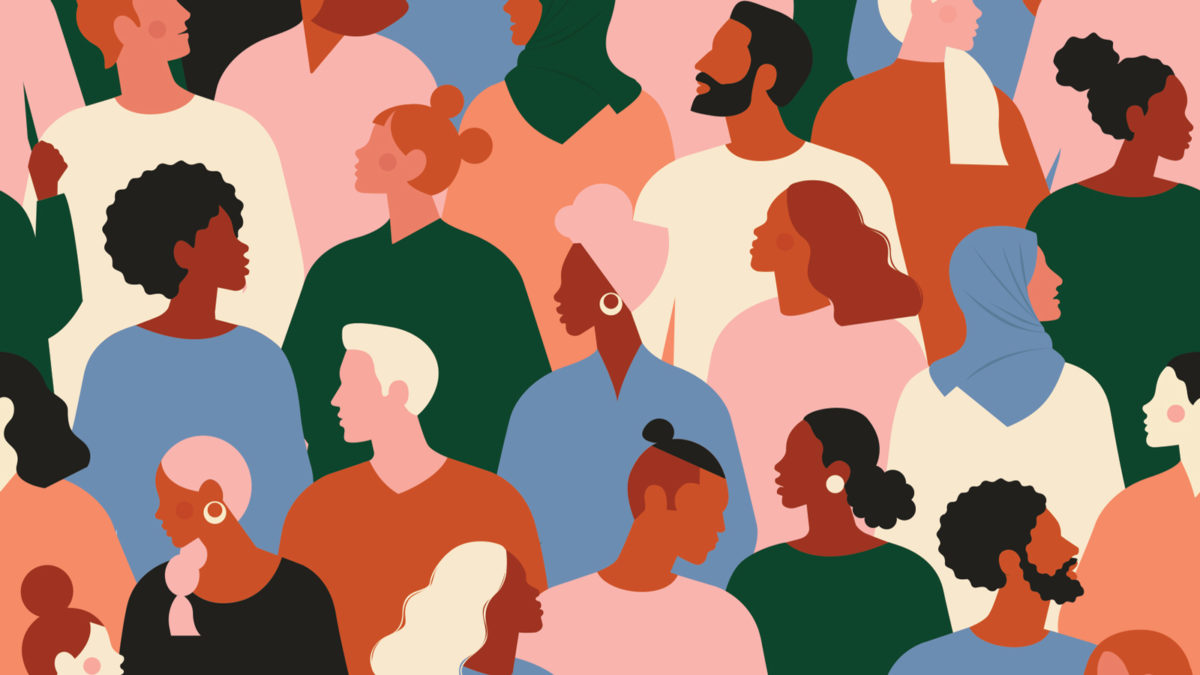
Crowdsourcing Mentorship
Creating a New Culture of Mentoring in the Legal Profession
May 2020

There’s no such thing as a self-made lawyer. All of us are where we are today because other people helped us along the way. But while mentorship is essential to every lawyer’s success, lawyers don’t form long-term professional relationships the way we used to. Such relationships are still immensely valuable, but they’re not always realistic in the modern law practice. As a result, lawyers must look beyond traditional mentorships and take a more individualized approach to mentoring that harnesses the power of the community.
What’s Hindering Mentorship?
New lawyers starting their own practices and those looking for work have a huge need for mentorship. But traditional legal mentorships aren’t as prevalent as they used to be. One reason is that today’s lawyers often don’t stay at the same place for very long. Another is that the emphasis on billable hours makes it hard for lawyers to dedicate non-billable time to mentoring. Lawyers need a convenient way to learn from and connect with veteran lawyers that doesn’t demand a substantial investment of time from the mentor.
Recognizing this need, almost every major law firm, corporate legal department, and government law office (including most smaller and midsize legal employers) has created some type of formal mentoring initiative. But many of these initiatives lack the resources necessary to match hundreds or thousands of lawyers with mentoring partners and help these new relationships thrive. Thus, many of these formal mentoring programs provide only a limited benefit to the mentee.
To help fill the gap, many bar associations and nonprofit legal assistance organizations have developed formal mentorship programs to supplement legal employer mentoring programs. Most of these programs have focused the mentorship in the area of professional responsibility and ethics. But most new lawyers (especially those starting their own practices) rank their needs for mentorship as follows (from most to least important):
- general business development
- law practice development
- substantive legal issues
- local procedural processes
- civil procedure
- professional responsibility.1
Overall, formal mentorship programs have not been very successful because they lack the nimbleness to respond to new lawyer mentoring needs.
All of this points to the need for a fresh approach to legal mentorship.
Developing a New Culture of Mentoring
It’s easy enough to set up lunches or “coffee chats” with colleagues and simply hope that a mentoring relationship will flourish from there. However, lawyers who take this kind of approach to mentoring miss the mark when it comes to sustainability.
For lawyers to reap ongoing benefits from mentorship, they must weave mentorship more broadly into the way they work and interact on a daily basis. Every lawyer is embarking on a career where the pathway is not always obvious and success is not guaranteed. It’s important for lawyers to follow the lead of scrappy, young entrepreneurs and create a personal culture of mentoring that connects them to peers in different environments and provides exposure to fresh ideas and new ways of thinking. So, do as the startups do and crowdsource your mentorship.
Crowdsourcing, in short, is maximizing the power of many. The idea behind crowdsourcing is that instead of having one resource, you have many resources at your disposal. It may be time to let go of the idea (fantasy) that a single great mentor will materialize and put you on the path to success. It’s more likely that by leveraging the broader community, you will gain more insight, advice, and counsel than a single mentor could ever provide.
The key? A willingness to put your authentic self out to your crowd.
Harnessing Your Crowd
If you’ve ever solicited advice, counsel, and constructive criticism from peers, colleagues, managers, and others, you’ve practiced elements of crowdsourcing. You can use this same technique to cultivate a new crowd (network) that can provide you with the ideas, knowledge, and information you need to make decisions in your law career. Follow these steps to harness the power of your crowd.
Find Your Crowd
Your crowd will shift over time. It must be continuously refreshed, and sometimes a light spring-cleaning will also be in order. Not everyone in your vast network is a suitable member of your crowd. Don’t fall into the trap of believing that the most insightful members of your crowd will have achieved a certain measure of success in your professional area of focus. Instead, ask yourself: “Is this person someone I want to emulate?” “Do I trust their judgment?” “Do they bring a new perspective to my inquiry?”
If the answer to any of these questions is yes, that person is likely a suitable candidate for your crowd. Think outside of the box and don’t be afraid to think outside of the profession. Look to peers, colleagues, bosses, clients, family, friends, professors, and acquaintances.
Model the Behavior You Want to See
Putting out what you want to get back is indispensable to the success of any relationship. The way you speak, engage with others, and generally behave can and will inform responsive actions. So to successfully kick off your crowdsourced mentoring movement, it is critical for you to serve in a mentoring role for others. For example, if you want people in your crowd to invest time in sharing skills and insight with you, provide them with your expertise and participate in mentoring opportunities when they arise naturally within your community. The more you encourage this behavior in your crowd, the better.
And remember, the benefit of crowdsourced mentoring is that there is no prescribed role of mentor or mentee. Every member of the crowd, veteran or novice, has experience to share and insight to impart. Don’t allow your age, practice experience, or professional stature to limit your perception of what you can model and contribute to your crowd.
Empower Others to Act
One way to embrace mentorship in your daily interactions is to seek opportunities to connect and encourage people to share their knowledge. For instance, if you have a colleague interested in learning to effectively self-promote and you have another colleague who is great at it, connect the two and ask your “subject matter expert” to coach the other. Emphasize within your community the benefit of asking for and receiving help from others. In a culture of mentorship, everyone should be giving and receiving help regularly.
While this informal day-to-day empowerment can be extremely effective, it is sometimes not enough to build the crowd you need. So parallel to these efforts, it is critical to engage in activities that will support multiple mentoring opportunities. This includes participating in formal mentoring and networking groups, and creating a meaningful space in your life to support these efforts.
Listen and Learn
As with data, the advice that your crowd gives you every day is useless to you unless you capture (listen and absorb) it by using good judgment to make the best use of the consolidated data. Sometimes the best advice must be plucked from unsolicited advice you have no interest in hearing.
Remember, feedback is the answer to a problem you may not have known you have. If you’re curious, you can become engaged in a conversation about unexpected or hard feedback. You don’t have to agree with the insight or act on it. But if you aren’t curious, you won’t hear it, you won’t be able to process it, and the gift will be lost to you.
Also, beware of the natural tendency to focus on ideas and advice that are already familiar to you. Many crowdsourced ideas fall flat because people are unwilling to address old habits or try new things. If you focus only on the advice that feels safe and easy, it defeats the entire purpose of crowdsourcing, which is to uncover new ways of thinking.
Expect and Embrace Failure
One of the keys to successful crowdsourced mentorship is conveying a sense of belief in your crowd by successfully navigating your professional setbacks. In crowdsourced mentoring scenarios, failure is bound to happen from time to time. But it’s important to remember that failure can be an incredible teacher.
Encourage yourself to accept failure. This can be a scary leap, but the best crowdsourced mentorship pushes you outside your comfort zone and provides invaluable perspective and experience so you become wiser, more agile, and better able to face challenges as they arise in the future.
Conclusion
We need different mentors at every stage of our careers, and some of us need multiple mentors at the same time. The norms of having one mentor, or a single-professional focus, are changing. Meanwhile, lawyers should continue leveraging the greatest tool in their arsenal: one another.
We are all responsible for changing the culture of legal mentoring by investing in the power of our community. We can work together to build effective crowds and meaningfully leverage the feedback and insight they source. We can build a culture of legal mentoring in Colorado that spreads openness and passion while challenging each other and reducing fear of failure. When one of us does better, we all do better. We can create a profession where everyone is seen as a business partner. Disrupt your career by crowdsourcing your mentorship and take your professional goals to the next level.
Notes
1. Meltzer, “A New Approach to Mentorship in Today’s Legal Profession: 4 Reasons Why it Can Be Successful,” Lawyer Exchange (Feb. 6, 2017), https://www.lawyerexchange.com/blog/new-approach-to-mentorship.
If you focus only on the advice that feels safe and easy, it defeats the entire purpose of crowdsourcing, which is to uncover new ways of thinking.


